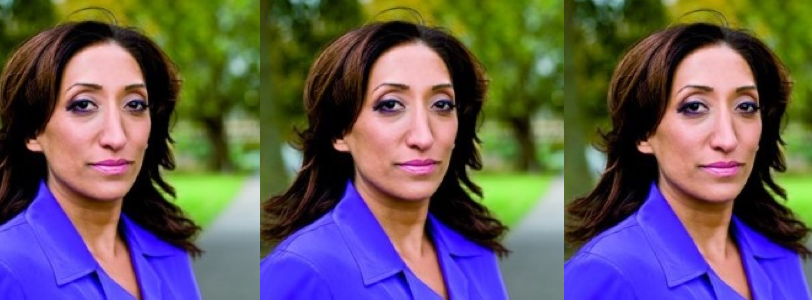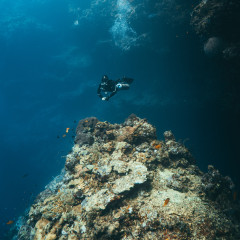Could you first introduce yourself to the reader?
I am a stand-up comedian and writer. I have had many columns in The Guardian, The New Statesman, and now write for The FT regularly. I am only funny in the evenings when I get paid.
How would you describe your show?
It's about what I think about the world right now, what's going on, Trump, Brexit, and how The Periodic Table has the answers to everything. It is funny, although it may sound grim.
Why do you want to perform at Edinburgh Festival Fringe?
It's my job. I have done the festival for years. You have to do it to become a better comic, to write new material, to be seen by people, and to keep evolving as a performer.
What differentiates it from other festivals?
It's huge and crazy and you see people from all over the world performing. All the food is fried and by the end you have put on ten stone and are depressed and broke.
Do you think the Fringe has changed over the years? If so, how? Are these changes positive or negative?
It's got bigger and bigger, so you get to see lots and lots of unusual things and people, but it has become so big that you can get lost in it all and not have time to see everything you want. It's also harder to get accommodation, and it can be very expensive. So bring a tent if you're coming.
What first motivated you to enter the industry? Who were your inspirations?
It was an accident. I was a science teacher at the time and just loved comedy and wanted to write. I ended up performing by accident and the first few gigs went so well I just carried on. I thought it wouldn't last but I'm still here. My inspirations are all dead; Robin Williams, Richard Pryor, George Carlin and Joan Rivers. They were all unique and irreplaceable. These days nothing matters, anyone is famous, and everyone is replaceable.
If you didn't have your current job, what would you probably be doing?
I'd be a miserable, sad, terribly unhappy science teacher, transferring my sad energy to teenage boys that are just as uninterested in science as I am.
If you could have any job in the world, what would it be?
I would love to have my own show that is transmitted all over the world. Although I do love comedy very much.
What is your earliest childhood art memory?
Playing Mary Magdalene in the school play. It was meant to be a serious part but I turned it into a comedy. People laughed in all the wrong places, for all the wrong reasons. I totally ruined the play and the story.
Do you ever feel any pressure to be a social commentator, or constantly update material to respond to events?
Yes. I am expected to be a professional Muslim, a professional woman, a professional Asian but not often a professional comedian. There are a lot of people who have never been able to see me as a comedian as there is no history of Muslim female comedians, only white male comedians, gay comedians, black comedians, but never anyone like me. When this happens I have to work ten times harder to be funnier so that people can look past who I am and just see me as a funny comedian.
Equally, do you think there has been a shift in public sentiment that has affected your work?
There has been a big shift in public sentiment but that's because I have worked hard to be accepted as just a comedian. White comedians haven't had to do that. They get accepted as they are as just comedians. People have had to get past my colour, gender and religion to see me as just a comic, which is all I ever wanted to be in the first place.
Describe the last year in 5 words or less?
Life changing, incredible, transformational, successful.
If you could work with anybody, from any point in history, who would you pick and why?
Richard Pryor. He could teach me how to be the best comedian in the world forever, and how to make material that was timeless.
Why would a performer opt to do either a ticketed event or participate in the free fringe? What are the benefits and limitations of both?
If you can sell tickets, you sell tickets. If you can't sell tickets and people don't know who you are, then it's good to go to the Free Fringe so people can see you for free and you can build up an audience. You can make money both ways and, from what I've seen, the audiences on the free fringe are very generous and you can make a lot of money. The only thing is you might have to do your own promotion and organisation.
What advice would you give to someone who wants to take a show up to the fringe?
Have a good show prepared, the best that you can possibly do at that time. Go because you want to, and not because you are being pressured into it. Don't let anyone force you up there; go because there is a piece of work you are passionate about presenting. It should never be about anything apart from the work.
When and where can people see your show?
At The Gilded Balloon at 7.30pm. In the Teviot room.
And where can people find, follow and like you online?
- I'm on Twitter: @shaziamirza1
- Instagram: theshaziamirza
- Facebook: Shazia Mirza
Shazia Mirza: With Love from St Tropez is performing at The Gilded Balloon at 19:30 on 2nd - 28th (not 16th). For tickets and more information visit the Ed Fringe website.









0 Comments